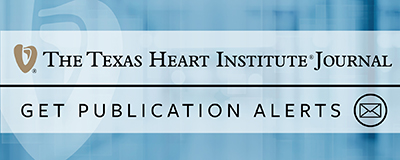Role of Physicians in Guiding Patients Away From Unproven Stem Cell Interventions
The intense marketing of unproven stem cell interventions (SCIs) has become an international health concern, and relying on government regulators to shut down unscrupulous clinics is no longer an option.1 Physicians are typically excellent resources when patients have questions about various medical therapies. Because many SCIs have not been approved for use, specialists are unlikely to raise the topic with patients, and other physicians may not be fully prepared to discuss them. Our goal is to describe how individuals are targeted, suggest educational resources, and offer physicians ideas regarding effective counseling.
Understanding the Market for Unproven Stem Cell Interventions
Stem cell interventions have been marketed internationally for many years,2 and more than 2,700 SCI clinics currently operate in the United States.3,4 Unproven SCIs are promoted as therapy for a specific medical condition or as a panacea for a broad range of conditions. Direct advertising targets patients who have serious illnesses or painful injuries that are refractory to conventional treatments.3,5 Advertisements for treatments misinform patients by emphasizing the general promise of regenerative medicine and strongly imply that they are scientifically legitimate. Potential clients are targeted on websites, in seminars, and through social media, typically with testimonials from patients (actual or purported) and celebrities. The benefits of unproven SCIs are exaggerated, risks are downplayed, and the requirement for United States Food and Drug Administration approval is minimized or ignored.
Some SCI clinics offer autologous stem cells derived from fat or bone marrow, and others use allogeneic sources, including birth tissue.6,7 Whereas practitioners may be chiropractors or naturopathic healers, most seem to be physicians who are practicing outside their scope of training.8,9 Health risks for patients in such circumstances are inherent. Sepsis, blindness, infections, and tumor formation were among the 360 adverse events (some fatal) reported after the use of unproven SCIs.10 Beyond the medical risks, out-of-pocket treatment costs can range from $2,500 to more than $50,000 per session, causing some patients to solicit crowdfunding donations.11,12
Providing Resources and Communicating with Patients
Physicians have a crucial role in helping to inform and guide patients who are enticed to try unproven SCIs. Specialists have cited concerns about the scientific uncertainties of unproven SCIs, misleading marketing, and physical harms, as well as the monetary costs.13 Informational and relational approaches are both used when counseling patients.14 Many specialists are comfortable discussing unproven SCIs; however, about one-third, including junior practitioners, feel underprepared to give advice.14,15 Learning about the risks of unproven SCIs and where to refer patients are important, but even more benefit can be gained by improving communication skills and expressing appropriate empathy.
Misinformation can cause patients to confuse the for-profit therapy offered by SCI clinics with legitimate clinical trials sponsored by hospitals and academic medical centers. Physicians are ethically and professionally bound to inform patients about evidence-based therapies,16 and they may refer patients to ClinicalTrials.gov for appropriate trials; however, several for-profit clinics have registered their SCIs, clouding the search for genuine clinical trials.6,17 To aid patients, the International Society for Stem Cell Research (ISSCR) has created educational materials to dispel myths and reinforce facts. Two prevalent myths are that all autologous stem cells are safe, and that one type of stem cell can effectively treat multiple unrelated conditions. The ISSCR warns that testimonials for unproven SCIs can be misleading, and that genuine clinical trials typically do not require participants to pay.18
Physicians can help patients understand the validity of information from websites, blogs, social media platforms, and news articles.19 Patients can also benefit from being referred to regenerative medicine consultation services,5,20 to media-review organizations that scrutinize news stories and press releases,21 and to scientific societies such as the ISSCR, all of which provide warnings about unproven SCIs.18,22,23
Patients may be reluctant to talk about unproven SCIs with their doctors. When a physician dismisses their interest, patients may be more inclined to visit unproven-SCI clinics where practitioners make them feel heard and entice them with false hopes.14,24 Accordingly, physicians should practice being nonjudgmental19; they should invite questions and carefully listen to clarify what patients know about SCIs and why they are interested. They should also avoid overstating their own concerns about the legitimacy of SCIs.25 By providing clear, evidence-based, jargon-free recommendations, communicating compassionately, and affirming their continued care and concern, physicians can effectively educate patients about unproven SCIs.
Contributor Notes
